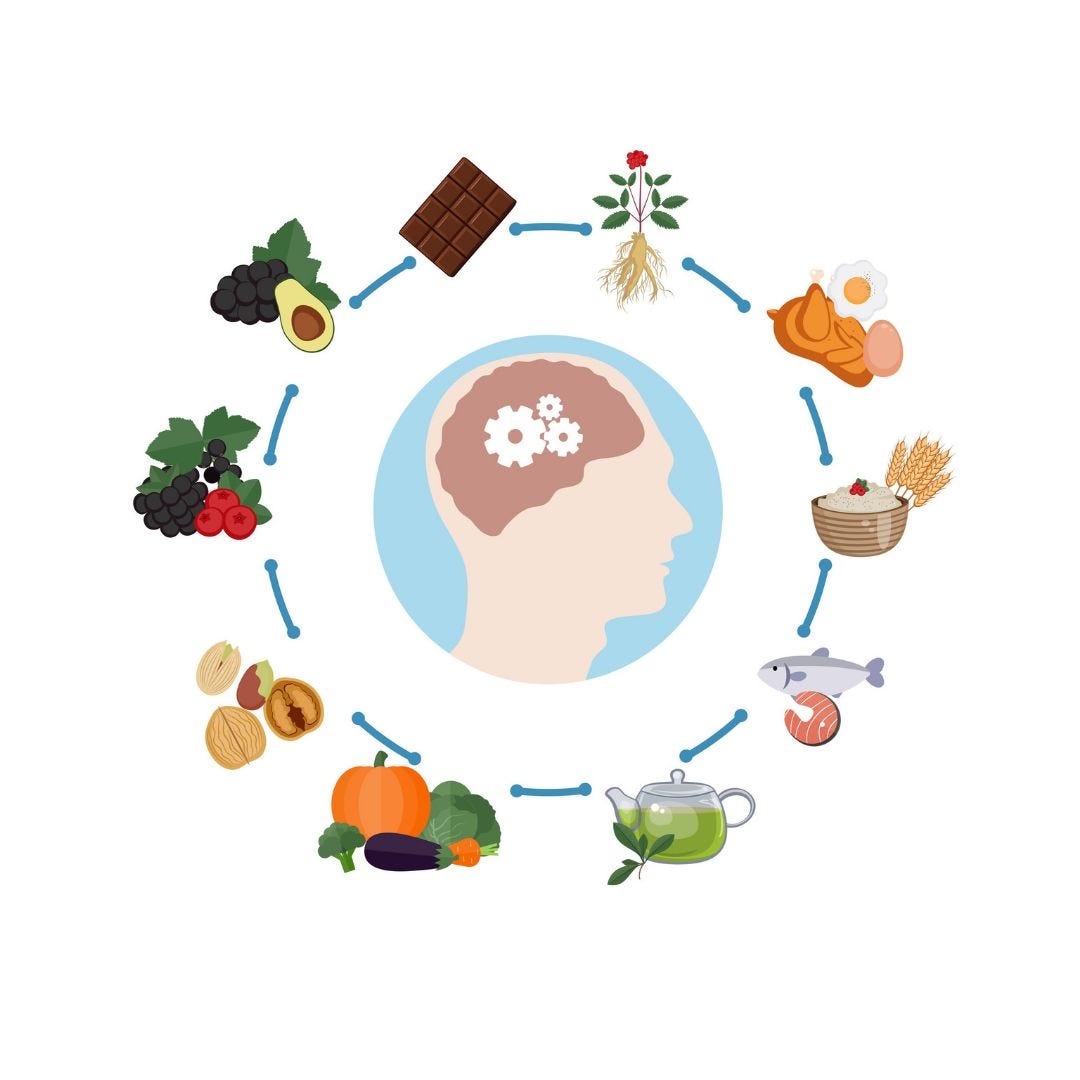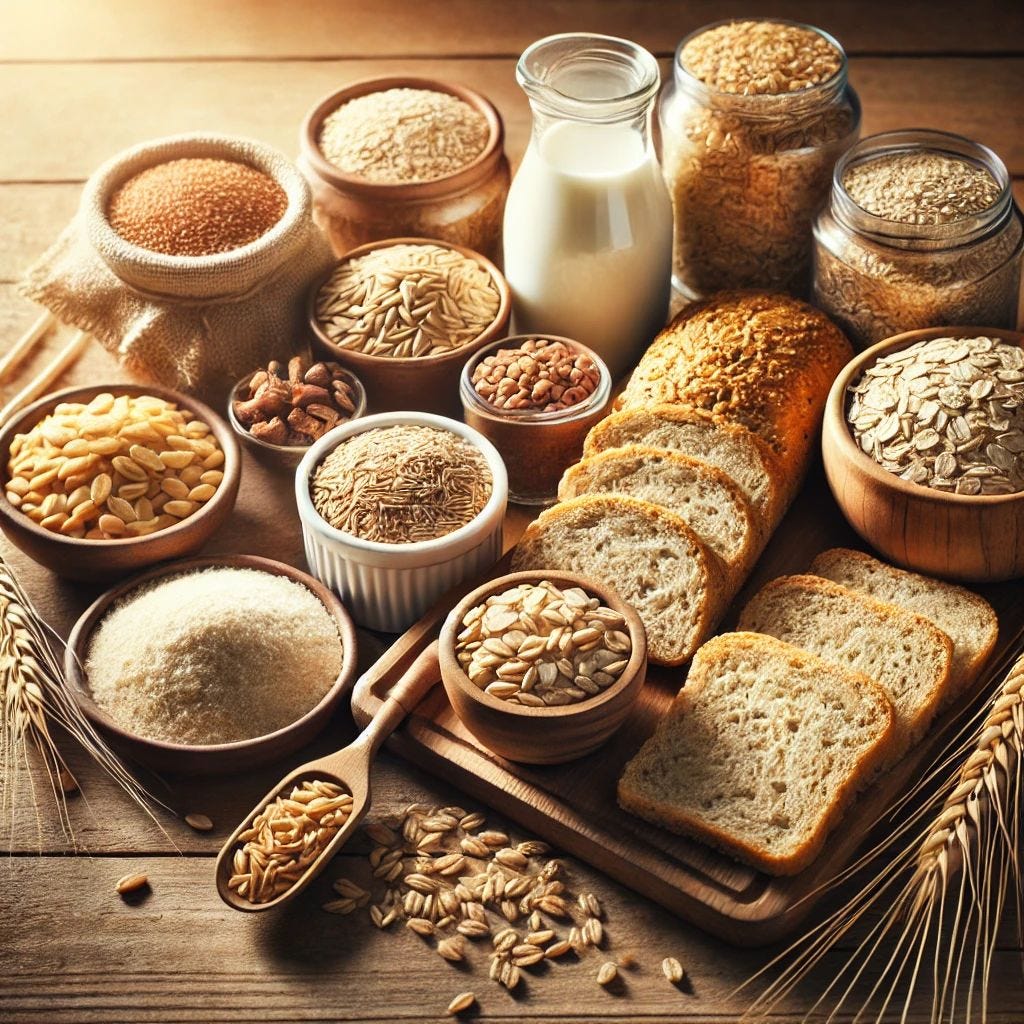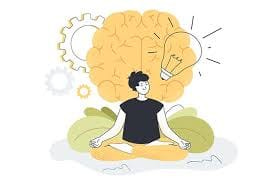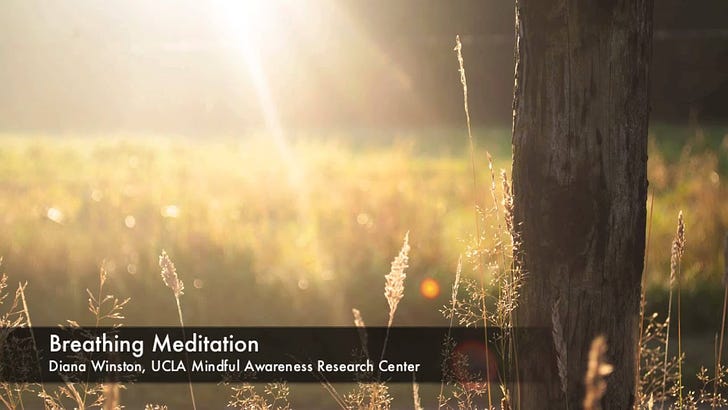4 Superfoods for Mental Health and Meditation Equal to Meds?
Have you ever noticed that WHAT you eat can impact HOW you feel?
This weekend, my mentor took me and my wife out to a fancy dinner in Miami to celebrate my wife passing her Internal Medicine Board Exam. We ate more red meat, rich pasta, and desserts in one night than we do in a month 😅. Do I regret it? Nope. You all know I’m a huge proponent of eating balanced & nutritious foods but that doesn’t mean we can’t indulge every once in while. We’re human!
After that heavy meal, I noticed that I felt more sluggish and foggy the next day, with lower energy in the gym and poorer sleep overall.
Maybe you've felt a bit groggy after indulging in certain food, or found yourself feeling sharp and alert after eating something fresh and nutritious? This is where Nutritional Psychiatry comes in—a specialized area of Psychiatry that explores how certain foods can boost mental fitness and even serve as alternative treatments for mental health conditions.

Image by Dr. Drew Ramsey, Nutritional Psychiatrist
During residency, as I developed an interest in Nutritional Psychiatry, I dove into the research and found strong data showing how the food we eat directly impacts our mental health. This kind of evidence motivated me to ask my patients about their eating habits and dive deeper into understanding what dietary recommendations I should make based on solid research.
For example, a study in 2009 showed that in 10,094 university students, those who adhered most closely to a Mediterranean diet had about a 50% reduced risk of depression compared to peers who did not consume this diet.

Over time, experts have identified several superfoods that pack a powerful punch for your brain, and I want to list 4 of them here that are some of my favorites:
Whole Grains:
These release blood sugar steadily, helping to stabilize your mood and prevent the mood swings that come from blood sugar spikes and crashes.

Examples: Whole wheat bread, brown rice, oats.
Berries:
I love berries for a few reasons. First, they generally have a lower glycemic index compared to other fruits like bananas, mangos, & watermelons. This means that they are digested and absorbed more slowly, leading to a gradual, steady release of blood sugar into the bloodstream. Second, they are LOADED with antioxidants, which can help slow down aging and protect brain cells. Third, they taste delicious.

Examples: Strawberries, blueberries, blackberries.
Dark Leafy Greens:
The magic here is folic acid, or folate. Low levels of folate have long been linked to depression and poor cognitive function, so making sure your diet includes these greens can make a difference. I like to sneak spinach into my breakfast by chopping up a handful of spinach leaves and tossing them into my scrambling eggs.

Examples: Spinach, broccoli, asparagus.
Fish and Nuts:
Fatty fish like salmon provide omega-3s, essential for brain health, supporting memory and overall cognitive function. Don’t eat fish? Plenty of plant-based options like flax seeds and chia seeds also offer omega-3s. Nuts are loaded with healthy fats and I try to eat a combo of nuts daily.

Examples: Salmon, mackerel, walnuts, chia seeds.
The connection between food and mood is undeniable, and by making small changes to what we eat, we can support our mental health in meaningful ways.
Mindfulness Meditation: A Natural Tool for Anxiety Relief (But Meds Are Still Okay!)
A recent study found that mindfulness meditation, specifically Mindfulness-Based Stress Reduction (MBSR), is just as effective as the antidepressant, escitalopram (Lexapro), in reducing anxiety symptoms. Over eight weeks, 276 adults with anxiety disorders showed similar improvements whether they practiced MBSR or took the medication. However, it’s important to note that this study does not suggest stopping medication. For many people, medication is crucial and highly effective in managing anxiety. Instead, this research offers another option—incorporating mindfulness into your routine, which can complement your current treatment plan.

Mindfulness may be a great addition to your mental health toolkit. As always, consult your doctor before making any changes to your treatment plan.
A New Mental Health Book by my friend and colleague, Dr. Jessi Gold
Lastly, I wanted to take a moment to highlight the incredible work of my friend, Dr. Jessi Gold, a psychiatrist who has been a relentless advocate for healthcare workers' mental health.

Her new book, How Do You Feel? offers a powerful look into the untold emotional and mental health costs that come with caring for others, all while normalizing open conversations about mental health.

Jessi has always been transparent about her own mental health journey, and her book combines this honesty with research and the stories of her healthcare worker patients. It's a must-read for anyone in the field, or anyone who wants to better understand the weight healthcare workers carry. If you're looking for a deep, thought-provoking read, I highly recommend her book.
This Week’s Sources:
Hu H, Mete M, Rustgi NK, et al. Mindfulness Meditation vs Escitalopram for Treatment of Anxiety Disorders: Secondary Analysis of a Randomized Clinical Trial. JAMA Netw Open. 2024;7(10):e2438453. doi:10.1001/jamanetworkopen.2024.38453
Sánchez-Villegas A, Delgado-Rodríguez M, Alonso A, Schlatter J, Lahortiga F, Serra Majem L, Martínez-González MA. Association of the Mediterranean dietary pattern with the incidence of depression: the Seguimiento Universidad de Navarra/University of Navarra follow-up (SUN) cohort. Arch Gen Psychiatry. 2009 Oct;66(10):1090-8. doi: 10.1001/archgenpsychiatry.2009.129. PMID: 19805699.
Disclaimer: These emails do not assume a doctor-patient relationship, and my information is not intended to substitute for medical advice. I offer science-backed educational information aimed at empowering you to live your best life. Always consult your personal doctor before starting any treatment. My views and opinions are my own and do not reflect the views of my employer.



